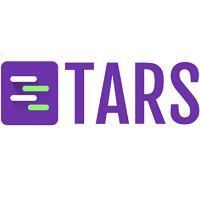Indeed, the majority of contemporary conversational AI systems are made to work on a variety of platforms and devices. This implies that users can communicate with the AI chatbot or virtual assistant via smart speakers, desktop computers, or even mobile devices. Users may easily access the AI technology wherever they go thanks to the platform's compatibility with a wide range of operating systems and messaging apps.
List of 20 Best Conversational AI Platform
Meet Atom Chat is the ideal communication tool for efficient team collaboration. This software boasts a user-friendly interface and top-notch security measures, ensuring smooth real-time messaging, video calls, and file sharing. Its dynamic features...Read More Atom Chat
Botco.ai is an innovative platform powered by AI technology that helps businesses improve customer interactions. It offers customizable chatbots that seamlessly integrate with company systems, providing real-time data to enhance efficiency and boost...Read More Botco.ai
HCL BigFix AEX - a virtual assistant solution designed to transform IT operations for businesses worldwide. Powered by real-time support and intelligent automation, HCL BigFix AEX revolutionizes user experience and maximizes productivity. Streamline...Read More HCL BigFix AEX
Netomi is an innovative customer service platform that utilizes advanced AI technology. Our real-time omnichannel support enhances the customer experience and seamlessly integrates with your current systems. By automating inquiries and prioritizing d...Read More Netomi
AmplifyReach Chatbot is a groundbreaking software that is revolutionizing the industry with its cutting-edge technology. It enhances customer interactions through seamless integration and offers intelligent virtual assistance to streamline communicat...Read More AmplifyReach Chatbot
NLX - a versatile platform that empowers both technical and non-technical teams to efficiently create, oversee, and assess all automated conversations from one convenient hub. Our flexible usage-based system simplifies conversational processes, allow...Read More NLX
Haptik is a Intelligent Virtual Assistant platform aimed at enhancing customer experience and boosting ROI for leading brands. Our cost-effective solutions utilize Conversational AI technology to elevate the customer journey and optimize processes. W...Read More Haptik
Flow.ai is a chatbot solution for your business accounts on Facebook and Whatsapp. With our software, you can effortlessly manage conversations in real-time across all platforms while automating tasks like content management and sales. Elevate your c...Read More Flow.ai
Sybill is artificial intelligence platform designed to support businesses in making strategic decisions. With cutting-edge machine learning and data analysis capabilities, Sybill offers precise forecasts and practical insights to optimize organizatio...Read More Sybill
Retell AI, a API solution that revolutionizes user communication through speech. Our advanced platform, with optimized models and features, effortlessly enhances user interaction for a seamless experience. Embrace the power of voice communication wit...Read More Retell AI
D-ID AI Video is a video creation platform powered by revolutionary generative AI technology. With our state-of-the-art Creative Realityâ„¢ Studio, effortlessly produce realistic videos and talking avatars at the click of a button. Take advantage...Read More D-ID AI Video
ElevenLabs - a AI-powered voice generator that transforms mere text into captivating speech, all at no cost. With our cutting-edge technology, effortlessly create realistic voices in multiple languages - perfect for enterprises, content creators, and...Read More ElevenLabs
Giosg Conversational Marketing - a solution that transforms customer interactions through live chat and intelligent automation. It enables businesses to convert website visitors into valuable leads and meaningful sales conversations, leading to incre...Read More Giosg Conversational Marketing
Engati Chatbot is a chatbot and live chat platform designed for Enterprises and Startups. Our comprehensive solutions are specifically built for Windows, offering a seamless chatbot experience. With the ability to tailor branding, Engati Chatbot simp...Read More Engati Chatbot
Aivo, a software powered by advanced AI technology, designed to revolutionize customer engagement and automate service processes. With its seamless integration across various digital channels, Aivo offers 24/7 support and tailored interactions, makin...Read More Aivo
Ideta is a AI-powered platform that takes your business to the next level. With its intuitive interface, Ideta enables you to effortlessly create personalized chatbots, streamline workflows, and enhance customer interactions. Experience seamless inte...Read More Ideta
Tars is a Conversational AI platform that revolutionizes customer experience and enhances employee productivity through intelligent automation. Trusted by over 700 top brands worldwide, Tars simplifies complex procedures into user-friendly dialogue,...Read More Tars
YouChat is a versatile software designed to simplify complex tasks and enhance user efficiency. Its intuitive interface and advanced features seamlessly streamline workflow management, allowing for more time to focus on important tasks. Elevate your...Read More YouChat
Eleo.ai is a platform that revolutionizes your content creation and engagement with your audience. By effortlessly merging text, concepts, visuals, and chatbots, Eleo streamlines your workflow and sets you apart from your rivals. With round-the-clock...Read More Eleo.ai
SnatchBot is chatbot creation tool for businesses and developers. It offers advanced functionalities like NLP, voice recognition, and support for multiple channels, making it easy to develop, deploy, and manage intelligent chatbots. Elevate customer...Read More SnatchBot
Learn More About Conversational AI Platform
- What Is Conversational Ai Platform?
- What Are The Recent Trends In Conversational Ai Platform?
- Benefits Of Using Conversational AI Platform
- Important Factors To Consider While Purchasing Conversational Ai Platform?
- What Are The Key Features To Look For In Conversational Ai Platform?
- Why Do Businesses Need Conversational AI Platform?
- How Much Time Is Required To Implement Conversational Ai Platform?
- What Is The Level Of Customization Available In Conversational Ai Platform?
- Which Industries Can Benefit The Most From Conversational Ai Platform?
- Conclusion
What Is Conversational Ai Platform?
A software program that integrates natural language processing (NLP) and artificial intelligence (AI) to generate interactive dialogues with users is known as a conversational AI platform. Businesses can interact with their clients more effectively and individually thanks to this technology, which eventually raises client satisfaction levels. Fundamentally, a conversational AI platform is made to comprehend and react to human language in the same way that a human would.
In contrast to conventional and frequently cumbersome computer language, users can now communicate with the platform using natural language. The user has a more pleasant and interesting engagement as a result of the more conversational and human-like experience this produces. A conversational AI platform's capacity to process vast volumes of data and learn from every exchange to continuously enhance its responses is one of its primary characteristics.
These platforms can adjust and comprehend the subtleties of human language through machine learning approaches, thereby increasing their accuracy. Conversational AI platforms have the ability to improve consumer engagement while also streamlining corporate operations like lead generation and customer care.
Due of these platforms' ability to manage several conversations at once, human agents are able to concentrate on more difficult jobs. Features like multi-channel support, integration capabilities, and configurable conversation flows are crucial to consider when evaluating a conversational AI platform. The platform's support for various languages and dialects, together with its security features to safeguard private data, are also very important factors to take into account.
What Are The Recent Trends In Conversational Ai Platform?
Recent developments in AI technology have had a significant impact on how companies communicate with their clientele. Particularly, conversational AI solutions have become increasingly popular as businesses look to enhance user experience and customer service. Buyers should be aware of the following leading trends in the conversational AI platform market:
1. Natural Language Processing (NLP): The development of Natural Language Processing (NLP) technology is one of the major themes in conversational AI systems. As a result, discussions become more fluid and lifelike as AI systems get better equipped to comprehend and interpret human language. Additionally, NLP enables more intelligent and precise responses, which enhances users' entire conversational experience.
2. Integration With Messaging Apps: Well-known messaging programs like Facebook Messenger, WhatsApp, and WeChat are now integrating conversational AI platforms. This makes it more comfortable for both sides by enabling businesses to communicate with their clients via the channels that they choose. Additionally, it makes it possible for businesses to offer clients individualized, real-time support, which improves customer happiness and engagement.
3. Self-Learning Capabilities: Based on user interactions, AI platforms continuously learn and get better. Their capacity for self-learning enables them to adjust to various contexts and discussions, gradually producing increasingly pertinent and precise answers. Additionally, it lessens the need for human interaction, which increases process efficiency and lowers costs for enterprises.
4. Voice Assistants: Voice-based interactions have grown in popularity as virtual assistants like Siri, Alexa, and Google Assistant have become more common. Voice recognition technology is increasingly being included into conversational AI platforms, enabling more organic and hands-free dialogues. Businesses can now serve a larger clientele, including people with disabilities or restricted access to technology.
5. Multilingual Support: In order to serve a wide range of clientele, conversational AI platforms must support many languages as organizations grow internationally. Nowadays, a lot of platforms accept many languages, which enables businesses to interact with clients in their favorite language and give a more customized experience.
Benefits Of Using Conversational AI Platform
Using a conversational AI platform for your company has several advantages. These platforms produce highly intelligent and interactive chatbots and virtual assistants by combining the power of machine learning and natural language processing, giving your consumers a smooth conversation experience. Some of the main benefits of using a conversational AI platform for your company are listed below:
1. Improved Customer Engagement: Conversational AI solutions enable conversational and tailored engagements with customers, resulting in a more interesting and fulfilling experience. These platforms can comprehend and react to consumer inquiries in real-time by utilizing natural language processing, offering a conversational experience that is similar to that of a human.
2. 24/7 Availability: Companies can offer their clients round-the-clock assistance by utilizing a conversational AI platform. This increases customer satisfaction and loyalty by doing away with the need for manual customer service and guaranteeing that your clients can contact you at any time.
3. Enhanced Efficiency: Conversational AI platforms may greatly boost efficiency and decrease response times by automating client interactions. Additionally, it increases human agents' productivity and overall influence on business operations by freeing them up to tackle more complicated queries.
4. Cost Savings: Businesses can reduce expenses related to customer support, such recruiting and training additional agents, by putting in place a conversational AI platform. Additionally, it removes the need for several support channels, which ultimately makes it a more economical solution.
5. Data-Driven Insights: Conversational AI systems gather and examine enormous volumes of data from consumer interactions, offering insightful information about the requirements, preferences, and behavior of customers. The performance of the platform and the user experience can then be improved with the use of this data.
6. Scalability: The number of consumer interactions will increase as your firm expands. Because conversational AI platforms can manage many conversations at once, they are very scalable to accommodate expanding companies' demands.
7. Multi-Channel Support: Businesses may engage with customers across many touchpoints by integrating a conversational AI platform with different messaging and communication channels. Customers will always have a smooth and consistent experience thanks to this, regardless of the communication medium they use.
Important Factors To Consider While Purchasing Conversational Ai Platform?
To make sure you are choosing the best conversational AI platform for your company's needs, it is crucial to take into account a number of variables. Here are some important things to remember:
1. Natural Language Processing (NLP) Skills: The AI platform's NLP skills are essential since they dictate how well it can comprehend and react to human language. To produce more human-like conversations, look for a platform that includes advanced natural language processing (NLP), such as machine learning, sentiment analysis, and context awareness.
2. Integration With Current Systems: Before spending money on a conversational AI platform, make sure it can easily interact with your current knowledge base, help desk, and CRM. This will improve the general client experience and help you streamline your processes.
3. Flexibility And customization: Your conversational AI platform should be able to accommodate the particular needs of every company. Seek out a platform that provides flexibility and customization so you may adjust the conversational experience to your industry, brand, and particular business requirements.
4. Multilingual Support: Selecting a conversational AI platform with multilingual support is crucial if your company has international operations. This will allow you to offer all of your clients, wherever they may be, a smooth communication experience.
5. Data Analytics And reporting: To assist you monitor and assess its performance, a quality conversational AI platform should have data analytics and reporting capabilities. To learn more about user behavior and enhance the chat experience, look for tools like sentiment analysis, discussion transcripts, and customer reviews.
6. Security And Compliance: Just as with any technology, a conversational AI platform's security and compliance are essential. Verify that the platform you select offers strong security features to safeguard private client data and complies with data protection laws.
7. Training And Support: Selecting a conversational AI platform with extensive training and support materials is essential because implementing new technologies can be difficult. This will guarantee seamless operations and assist you and your staff in becoming acquainted with the platform. By taking these things into account, you can choose the best conversational AI platform for your company and raise customer satisfaction, engagement, and productivity levels. To make an informed choice, make sure you do your homework and weigh your possibilities.
What Are The Key Features To Look For In Conversational Ai Platform?
To make the greatest choice for their business objectives, purchasers should take into account a number of important qualities when selecting a conversational AI platform. There are a few essential components that every buyer should search for, albeit these qualities can differ based on the particular platform.
1. The Foundation Of Any Conversational: AI platform is natural language processing, or NLP. In order to have a smooth and organic dialogue with users, the platform must be able to comprehend and interpret human language, which is made possible by NLP.
2. Multilingual Support: A Conversational AI platform's ability to support multiple languages is essential in the current global marketplace. This guarantees that your platform can reach a larger market and serve a varied audience.
3. AI-Powered Response Generation: Conversational AI platforms differ from simple chatbots in that they can produce responses that resemble those of a human. Seek out a platform that makes use of AI and machine learning to produce perceptive answers that closely resemble human speech.
4. Integration With Multiple Channels: A strong conversational AI platform should be able to interface with multiple channels of communication, including voice assistants, social media, and messaging apps. This offers a smooth experience across all platforms and lets you connect with your audience wherever they are.
5. Personalization And Customization: Every company has different demands, and a successful conversational AI platform should allow you to customize it to meet your needs. Additionally, personalization is essential because it enables the platform to learn from user interactions and deliver future experiences that are more tailored to each individual.
6. Analytics And Reporting: Monitoring and evaluating your Conversational AI platform's performance is essential to determining its efficacy and implementing changes. Seek out a platform that offers comprehensive reporting and analytics capabilities, including performance data, user activity insights, and chat logs.
7. Security And Compliance: Security and compliance are of utmost importance while handling sensitive data. Make sure the conversational AI platform you select complies with industry requirements like GDPR and HIPAA and has strong security features in place, such as data encryption. When comparing several conversational AI platforms, take into account these important characteristics to determine which one best meets your company's requirements and offers the greatest value. In the end, the ideal conversational AI platform should improve customer satisfaction, boost productivity, and spur company expansion.
Why Do Businesses Need Conversational AI Platform?
Today's businesses are working hard to satisfy the growing need for individualized interactions and deliver outstanding client experiences. Conversational AI platforms are useful in this situation. It is a one-stop shop that helps companies use AI and machine learning to have conversations with their clients that seem real and genuine.
The increasing volume of consumer inquiries and interactions that companies get on a daily basis makes conversational AI platforms necessary. Businesses may greatly lessen the workload of their customer care teams and give their consumers a flawless experience by using this platform to automate and streamline their client interactions. That's not all, though.
Additionally, conversational AI platforms give companies the chance to learn important details about the wants, requirements, and problems of their clients. Personalized advice, marketing strategy optimization, and general consumer satisfaction can all be achieved with this data. Additionally, because of its high scalability, the Conversational AI Platform may be used by companies of any size.
It can manage many chats at once, guaranteeing that no client question is left unaddressed. The Conversational AI Platform's round-the-clock availability is another important feature that makes its adoption imperative for companies. Regardless of the time of day, customers now anticipate prompt answers to their questions. By removing the requirement for human involvement, conversational AI platforms give organizations 24/7 assistance to satisfy this rising need.
How Much Time Is Required To Implement Conversational Ai Platform?
The amount of time needed to implement a conversational AI platform can vary depending on a number of factors, including the AI's sophistication, the size of the data source, and the process of integrating the platform with current systems. However, the average time to completely deploy a conversational AI platform can range from a few weeks to a few months. Data collecting is the initial stage of putting a conversational AI platform into use.
This entails obtaining all the facts and information required for the AI to comprehend and react to user queries. FAQs, product details, and prior customer contacts are a few examples of this data. This process may take a few weeks to several months, depending on the size and complexity of the data set. After that, the data is prepared and arranged so the AI can process it.
This is an important stage that can significantly affect the conversational AI's efficacy and accuracy. This process may take a few weeks to a few months, depending on the volume of data and the degree of organization needed. The conversational AI is trained and evaluated after the data is prepared. To make sure the AI is correctly comprehending and reacting to user inquiries, this method entails developing several scenarios and testing the AI's answers.
Depending on how complicated the AI is and how many scenarios need to be evaluated, this step's duration can change. The AI is included into current systems following training and testing. In order for the AI to communicate with consumers, this stage entails connecting it to a variety of channels, including social media, messaging apps, and websites.
The complexity and quantity of systems that must be integrated determine how long this stage will take. Depending on the particular demands and specifications of the company, the time needed to deploy a conversational AI platform might vary from a few weeks to several months. For the conversational AI platform to be implemented successfully, every step must be carefully planned and prepared for.
What Is The Level Of Customization Available In Conversational Ai Platform?
The degree of customization offered is one of the most important factors to take into account when choosing a conversational AI platform. This is the degree to which the platform may be customized to fit the unique requirements and tastes of your company. Generally speaking, there might be a wide range in the degree of customization offered by conversational AI platforms. While some platforms offer a significant degree of flexibility and customization, others might just offer basic options.
Let's examine in more detail the various degrees of personalization that a conversational AI platform can offer.
1. Pre-Built Templates: A few platforms provide pre-built templates that can serve as a foundation for developing virtual assistants and chatbots. These templates can be somewhat altered, such as by adding branding components or altering the conversation flow, and are made to fit particular use cases. However, because you will be working within the template's limitations, the degree of personalization is limited.
2. Drag-And-Drop Interface: Some platforms offer a drag-and-drop interface that enables companies to add new features and easily modify the conversation flow without needing to know how to code. Businesses with simple needs that don't need a lot of customisation can use this level of personalization.
3. Code-Based Customization: Certain platforms provide code-based customization choices for companies with more intricate needs. This implies that developers can construct highly customized chatbots and virtual assistants by writing unique scripts and code. Although it necessitates technical know-how, this degree of customisation offers the greatest versatility.
4. Customization Of Natural Language Processing (NLP): NLP is an essential component of Conversational AI since it allows chatbots to comprehend and react to natural language inputs. Customizing the NLP model is possible on certain platforms, which can improve the precision and potency of the chatbot's responses. Businesses who need to incorporate industry-specific vocabulary and jargon into their chatbots must have this degree of customization.
5. Personalization: A crucial component of the consumer experience is personalization, and several conversational AI platforms provide sophisticated personalization features. With this degree of personalization, companies can adjust the dialogue and answers according on the interests, past actions, and behavior of a particular user.
Which Industries Can Benefit The Most From Conversational Ai Platform?
Platforms for conversational AI are revolutionizing how companies communicate and connect with their clientele. By simulating human conversation through machine learning and natural language processing, these potent tools offer a more effective and individualized client experience. Although a variety of businesses can benefit from conversational AI, some stand to gain the most from its application.
1. Retail And E-Commerce: Conversational AI tools have the potential to completely transform how consumers shop and buy products online. Retailers can provide customers with real-time assistance and tailored product recommendations by including chatbots into their websites or messaging applications. This boosts sales and consumer satisfaction in addition to improving the shopping experience.
2. Healthcare: Conversational AI platforms have a lot to offer the healthcare sector, particularly in terms of patient care. Chatbots can help with medicine reminders, appointment scheduling, and other patient information, freeing up medical staff time for more important duties. Conversational AI can also help with medical research and data analysis.
3. Banking And Finance: Banks and other financial organizations can enhance customer service and expedite procedures by utilizing conversational AI. Chatbots can assist users with routine banking duties like transferring money and monitoring account balances. This increases productivity and customer satisfaction by freeing up human workers to concentrate on more difficult jobs and client inquiries.
4. Travel And Hospitality: By offering round-the-clock support, conversational AI platforms can improve the travel and hospitality experience for clients. Chatbots are capable of handling any task, including booking flights, making hotel reservations, and responding to often requested questions. Furthermore, conversational AI can be included into smart speakers, virtual assistants, and other gadgets to offer tourists a smooth and practical experience.
5. Human Resources: The use of conversational AI platforms is also showing promise in this area. Chatbots can help with employee onboarding, provide answers to inquiries about company policy or benefits, and even perform preliminary assessments of job candidates. This enhances the entire employee experience while also saving HR departments time and money.
Conclusion
To sum up, picking the best conversational AI platform for your company is an important choice that needs to be carefully thought out. You may make an informed choice that supports your aims and objectives by being aware of your unique needs and weighing the important considerations covered in this buyer's guide. Before making a purchase, there are a number of factors to consider, ranging from comprehending the features and technologies provided by various platforms to evaluating their user interface and integration possibilities.
For long-term performance and return on investment, it is also critical to take into account elements like price, scalability, and customer support. It is our goal that our buyer's guide has given you useful information to aid in your decision-making. To choose which platform best suits your particular business requirements, do extensive research, test out several options, get referrals, and take advantage of free trials. You may invest with confidence in a conversational AI platform that will improve customer satisfaction and spur business expansion if you bear these suggestions in mind.
Conversational AI Platform FAQ's
Can Conversational AI Platform Be Accessed Across Multiple Devices And Platforms?
Is Conversational Ai Platform Future-Proof And Adaptable To Emerging Technologies Like Ai, Blockchain or Iot?
Indeed, a conversational AI platform can be easily integrated with new technologies such as blockchain, artificial intelligence, and the Internet of Things. This is due to the fact that it is constructed using the newest technology and is always altering to stay up with the rapidly evolving digital world.
A Conversational AI platform guarantees that your company stays ahead of the curve and is prepared to adopt any new technology that is introduced to it because of its seamless communication and integration capabilities with other technologies.
Is There A Free Trial Offered To Assess Conversational Ai Platform Before Committing?
Indeed, a lot of conversational AI systems allow users to test out the features and functionalities of the platform for free before deciding to subscribe. This enables users to evaluate the platform's efficacy and suitability for their unique demands.
To help customers become acquainted with the platform's features and interface, some platforms even provide a free limited version of their product. Utilizing these trial periods is usually advised in order to make well-informed choices regarding the platform that is most appropriate for your company.
Does Conversational Ai Platform Offer Data Security Features And Meet Regulatory Compliance Standards?
Indeed, the majority of conversational AI systems have strong data security capabilities to safeguard private data and guarantee adherence to legal requirements. Access controls, encryption, safe data storage, and frequent security audits are a few examples.
Furthermore, several systems enable data anonymization for privacy protection and have built-in tools to comply with different requirements, including GDPR and HIPAA. When selecting a platform for your company, it's critical to carefully consider its security features.
Can Conversational Ai Platform Integrate Seamlessly With Existing Tools And Platforms?
Yes, conversational AI platforms are designed to integrate seamlessly with existing tools and platforms. This allows businesses to use and leverage their current systems while incorporating the benefits of conversational AI. These platforms are built with open APIs and can be easily integrated with popular tools like CRMs and messaging platforms. This ensures a smooth and efficient adoption of the conversational AI technology.






















